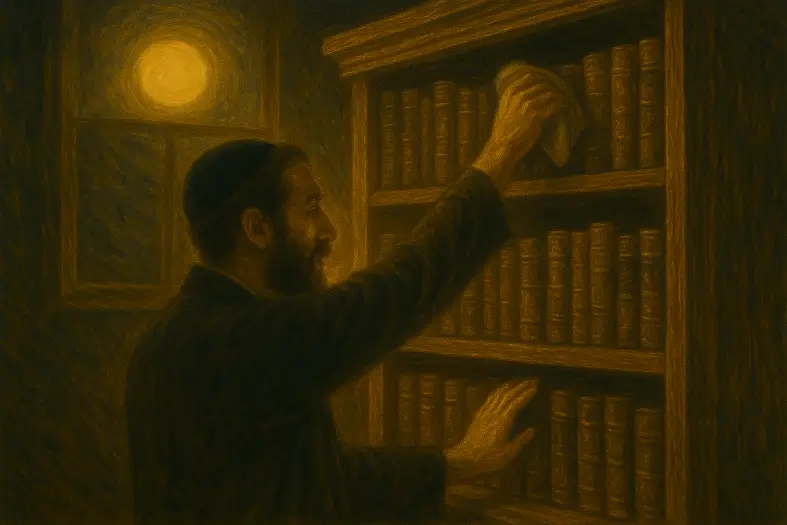


It is forbidden to destroy or disrespect objects associated with Hashem, such as the Temple, sacred vessels, Torah scrolls, or Divine Names.
This mitzvah prohibits the destruction of holy objects dedicated to Hashem. Rambam (Sefer HaMitzvot, Negative Commandment 65; Hilchot Yesodei HaTorah 6:1–6) codifies that one may not destroy the Temple, its vessels, or erase the Divine Name. Sefer HaChinuch (Mitzvah 437) explains that since these items are consecrated to holiness, damaging them is tantamount to dishonoring Hashem Himself.
The Talmud (Makkot 22a) discusses the prohibition of erasing Hashem’s Name from writing. Rashi (Deut. 12:4) interprets the verse as forbidding any destruction of sacred structures, unlike the command to destroy idolatrous sites. Ramban emphasizes that reverence extends beyond the Temple to all sanctified items, such as mezuzot and Torah scrolls. Midrash Sifrei (Re’eh 61) warns that desecration of holy items dishonors Hashem’s Presence that dwells among Israel.
Commentary & Classical Explanation:
Contrast with Destroying Idolatry (Mitzvah 53):
Parallel to Reverence for the Temple (Mitzvah 304):
Respect for Holy Texts
Sanctity in a Digital Age
Safeguarding Synagogues and Ritual Objects
Resisting Secular Desecration
Mindful Speech and Writing
Environmental Reverence


Concerns the Beit HaMikdash, korbanot (offerings), and priestly service.
Represents the concept of spiritual intentionality, purity, and sanctity—set apart for a higher purpose.
Signifies awe and reverence toward Hashem—living with awareness of His greatness and presence.
Represents Emunah—the deep, inner trust in Hashem’s presence, oneness, and constant involvement in our lives. This badge symbolizes a heartfelt connection to G-d, rooted in belief even when we cannot see. It is the emotional and spiritual core of many mitzvot.
Used for mitzvot that reflect Judaism’s foundational principles—belief in G-d, reward and punishment, prophecy, Torah from Heaven, and more. These commandments shape the lens through which all others are understood.
Mitzvot that define and deepen the relationship between a person and their Creator. These include commandments involving belief, prayer, Shabbat, festivals, sacrifices, and personal holiness — expressions of devotion rooted in divine connection.

Dive into mitzvos, prayer, and Torah study—each section curated to help you learn, reflect, and live with intention. New insights are added regularly, creating an evolving space for spiritual growth.

Explore the 613 mitzvos and uncover the meaning behind each one. Discover practical ways to integrate them into your daily life with insights, sources, and guided reflection.

Learn the structure, depth, and spiritual intent behind Jewish prayer. Dive into morning blessings, Shema, Amidah, and more—with tools to enrich your daily connection.

Each week’s parsha offers timeless wisdom and modern relevance. Explore summaries, key themes, and mitzvah connections to deepen your understanding of the Torah cycle.